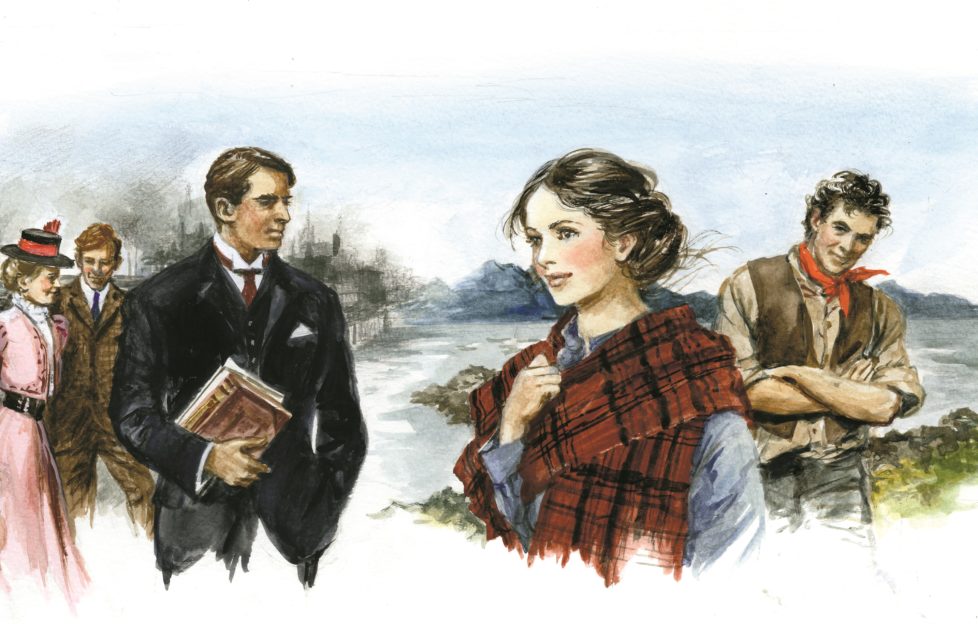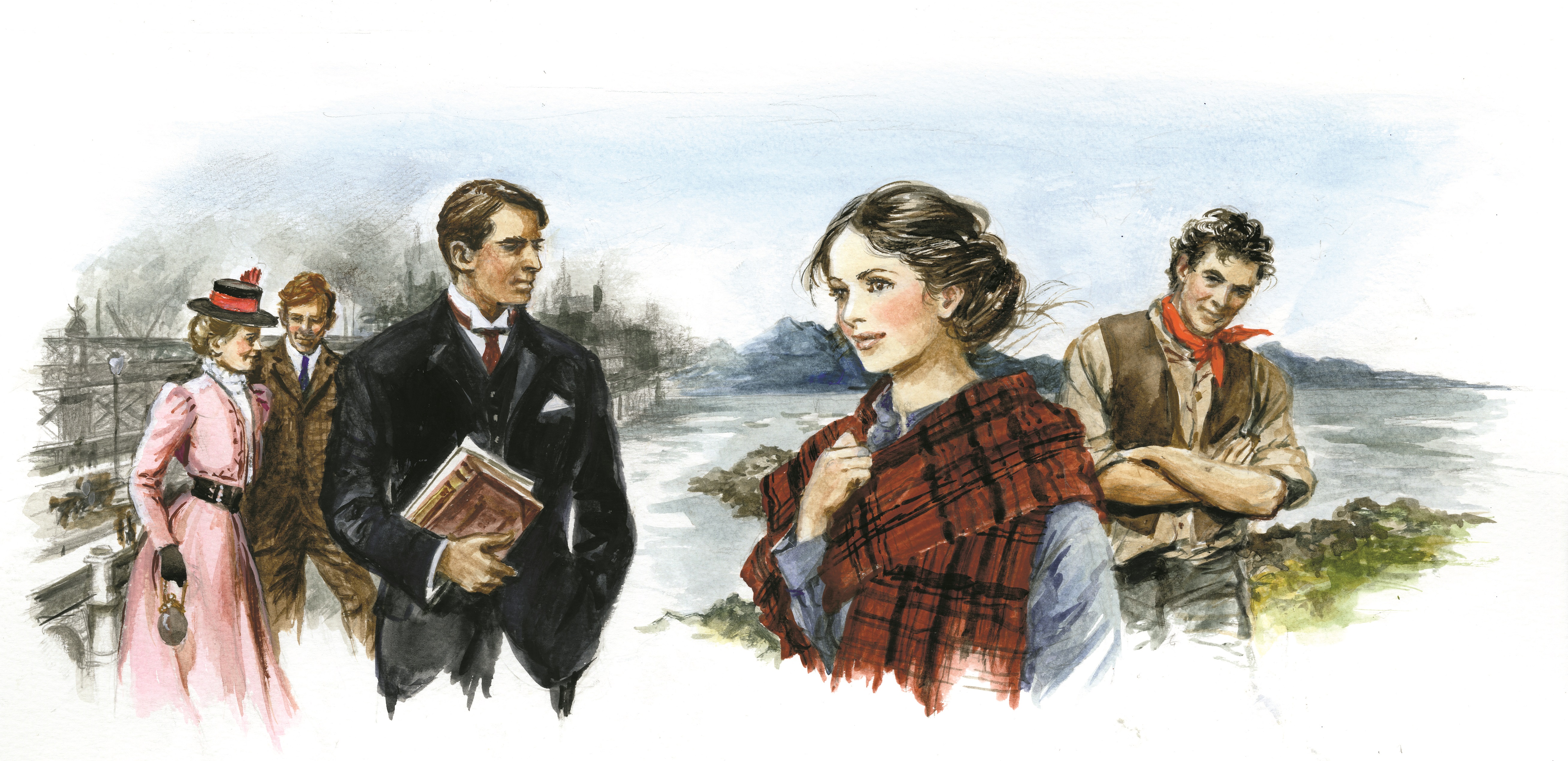Far From The Island – 04

Far From The Island
« Previous Post- 1. Far From The Island – 01
- 2. Far From The Island – 02
- 3. Far From The Island – 03
- 4. Far From The Island – 04
- 5. Far From The Island – 05
- 6. Far From The Island – 06
- 7. Far From The Island – 07
“So, you are Ella’s little cousin from the Isle of – er . . .”
“Heronsay, ma’am,” Fiona said.
“Ah, yes, Heronsay, indeed,” Constance Cunningham said, thinking that the island sounded as if it were located adjacent to Timbuktu.
Mrs Cunningham was impeccably dressed in an afternoon gown of mauve silk trimmed with cascades of cream lace at the high ruffled neckline and hugely puffed sleeves. Her dark brown hair was caught up on top of her head in an elaborate coiffure of curls. The way the country mouse was looking at her, she wondered if it was obvious that not all of the hair was her own, but decided that the girl was probably just admiring the effect. Still, her clear gaze was disconcerting.
“You nursed your late father through his illness, I believe,” Mrs Cunningham said.
“I did, ma’am.”
“So you know what to expect?”
The girl shifted her clogged feet uncomfortably on the thick carpet of the drawing-room.
“I believe every case is different, ma’am.”
“Yes,” Mrs Cunningham interrupted, “but the prognosis is the same, is it not? And that is what you are here for, Miss Matheson, to see Francis through to the end.” The utterly appalled look she received in answer to this question made Constance Cunningham blush under her powder.
“The end may yet be some time away, ma’am,” Fiona Matheson said finally, breaking the uncomfortably stretching silence.
“Make no mistake, Miss Matheson, Francis is a terminal case,” Mrs Cunningham replied, clenching her fists in the folds of her gown. “You are not a qualified nurse, are you?”
Fiona Matheson shook her head.
“We did consider employing one, you know. It is important to us that my son is provided with every possible assistance.” Mrs Cunningham fiddled with her pearls. “He suffers,” she said, softening slightly. “He won’t admit it, but I know he does.”
“It can be most distressing to witness,” Fiona said gently.
“And there is so little that we can do,” Constance said wretchedly, giving rare vent to her feelings, her bosom visibly rising and falling as she sought to regain control, mortified and yet touched by the sympathy she could see etched on the Highland girl’s face.
“He can be made comfortable,” Fiona said, “and I have heard that there are new treatments being introduced all the time.” She dropped to her knees by Constance’s chair, taking her hand, obviously quite oblivious to the rules of etiquette which prevailed in Glasgow society. “You must not give up hope. Consumption is not always a killer.”
It was the pity in her tone which made Constance pull her hand away sharply, rather than the shock she felt at having the girl overstep the social boundary.
“You no doubt mean well, child, but there is no hope,” she said as the girl scrambled back to her feet, her cheeks hot with embarrassment. “I don’t want you filling Francis’s head with that sort of nonsense, do you understand?”
Mortified, Fiona nodded mutely.
“Francis is attended by the doctor, of course, but on a daily basis you will act as his companion and be responsible for him.”
“I see,” Fiona said, struggling now to keep a check on her temper. Her charge’s illness was obviously considered an embarrassment and it seemed she was simply to be treated as a servant.
“You will be allowed a half day off on a Saturday, and you will attend church on a Sunday with the rest of the household,” Mrs Cunningham continued, oblivious of the resentment seething in Fiona’s breast. “I assume you are a practising Christian?”
“We are not heathens on Heronsay,” Fiona replied through gritted teeth, ignoring the sharp tug on her plaid which Ella surreptitiously administered.
“I will not have insolence among my – in my house,” Mrs Cunningham said sharply.
“I am not a servant, ma’am,” Fiona replied roundly, “and nor am I insolent. I treat with respect those who respect me.”





